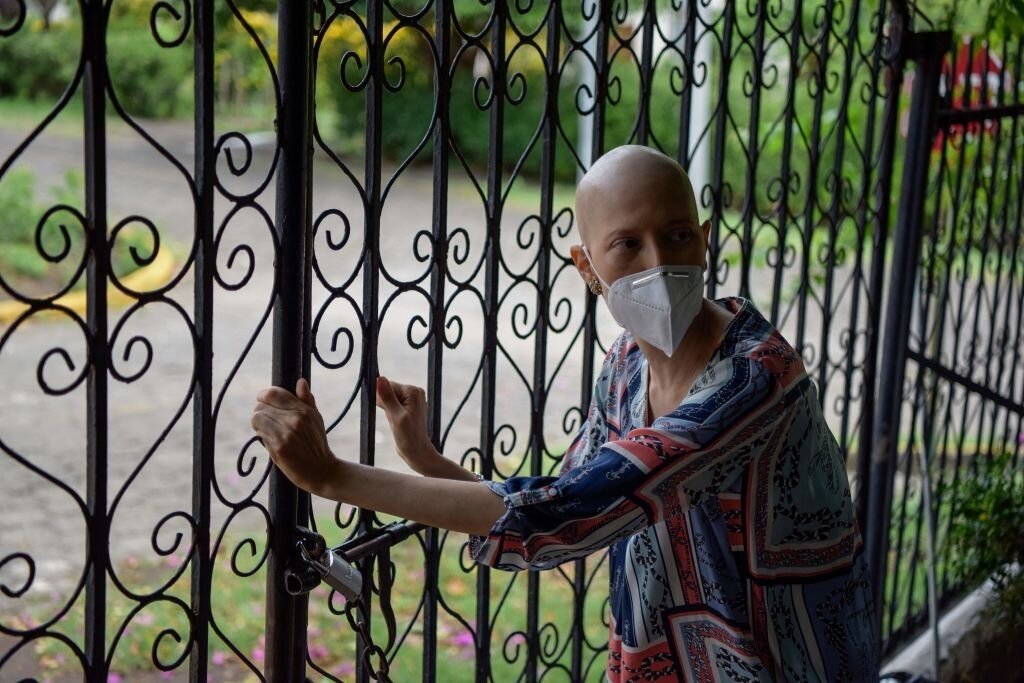Latin Analysis: Nicaragua Regime Arrests Opposition Candidates Ahead of November Election
INTI OCON
This year has been difficult for Nicaraguan democracy. With an upcoming general election in November, the regime in power has taken dramatic steps to completely stop the opposition from possibly participating on the ballot. This past month the country’s president Daniel Ortega has had multiple opposition candidates and political activists jailed. This action comes after months of the government repressing the opposition and voters.
Nicaragua’s dictatorship was acknowledged worldwide in mid-2018. Reforms to social security led to protests that turned violent when Ortega’s government deployed the national police to handle protests. Over the course of two months, clashes between government forces and the people continued, leading to a death toll of over 300, and over a thousand people arrested. A few months afterward, Ortega had political protests and demonstrations declared illegal, unless they were pro-government. At this point in time, Daniel Ortega had already been president for 12 years straight. Along with Ortega’s previous rule from 1979-1990, Ortega has been in power for 26 of the 42 years since the 1979 Sandinista revolution, which brought down the country’s previous dictatorship.
Daniel Ortega was once a guerrilla commander for the Sandinista Front for National Liberation (FSLN), a marxist warfare group. The Sandinistas waged war against the Somoza family regime, whom had been ruling since the 1930’s. The group took over the country by force in 1979 and helped transition the country to democracy in 1984. Ortega had won Nicaragua’s first election following the revolution, yet only serving one term in office after losing reelection. More conservative administrations took his place in the 90’s and 2000’s. Ortega constantly sought out reelection, winning again 16 years later in 2006.
From the moment Ortega was reelected to the presidency in 2006, he has been slowly chipping away at Nicaragua’s political institutions. He changed the constitution to allow him to have more presidential terms. He had the FSLN gain a supermajority in parliament. He set up a family monopoly on the media in order to restrict free speech, and he had his own wife, Rosario Murillo, become his vice president. As each of his undemocratic actions became more and more explicit, repression against the opposition and the people became more frequent. His 2017 reelection was condemned for being highly fraudulent. The country’s security forces, including the national police, parapolice, and the army have committed many human rights violations such as forced disappearances, unlawful killings, extrajudicial killings, torture, and detainment of political prisoners and activists. There has also been mass censorship, and substantial limitations of free speech, assembly, and religious freedom. All in all, Nicaragua’s government has one of the most repressive regimes in the western hemisphere. Ironically, Ortega has reverted Nicaragua to a familial dictatorship to the likes of the Somoza family regime that he undid himself.
Even though Ortega’s government has been well consolidated for years at this point, the regime doesn’t take it for granted. That’s why the government has turned to even higher levels of repression to keep their power under control. Since the moment that the November 2021 election was announced by the government last year, the overall weak and fractured opposition has been under attack. December 2020 had the government pass a legislative package that allowed Ortega to classify anyone as a terrorist or “coup monger.” Being labeled as such effectively bans them from officially becoming a candidate as well as up to 15 years in prison. While this law created a significant roadblock for some of the potential candidates, the regime still remained fearful of possible opponents and critics. Now, the government has opted to arrest dozens of opposition leaders, including those who aren’t running for office.
As of June 2021, the regime has arrested four aspiring presidential candidates: Cristina Chamorro, Arturo Cruz, Juan Sebastian Chamorro, and Felix Maradiaga. Cristina and Juan Sebastian come from the politically powerful Chamorro family. Cristina’s mother, Violeta Barrios de Chamorro was president from 1990-1997, and so Cristina, who is a part owner of Nicaragua’s largest newspaper La Prensa, was recognized as the opposition candidate most likely to win against Ortega. Chamorro was the first to be detained along with Cruz, who was the ambassador for the U.S. from 2007-2009. The following week, academic and businessman Maradiaga and Juan Sebastian Chamorro, Cristina’s cousin, were arrested.
Along with presidential candidates, other prominent political leaders have been detained as well, including many former Sandinistas who participated in the revolution with Ortega. Ortega’s government claimed that everyone who was detained were usurpers funded by the U.S. government, aiming to topple his government. Many countries and international organizations have condemned the arrests, already stating that the November election will most likely be nontransparent and fraudulent.
It is hard to be optimistic about where Nicaragua is at. Since independence, this is the third time the country has been led by a highly repressive autocratic regime. Ortega’s government has essentially covered all of its bases. There are no anti-government demonstrations or protests, no voice critical of the government on television or radio, nor are there any opposition candidates on the ballot against Ortega. It is highly doubtful Ortega will lose the upcoming election. However, highly repressive regimes can destabilize very quickly. So while the regime seems stable at the moment, Nicaragua has an impressive history of armed struggle and revolution. Perhaps the near future could be a drastically different story for Ortega.

